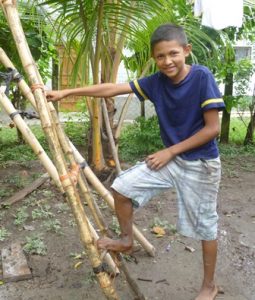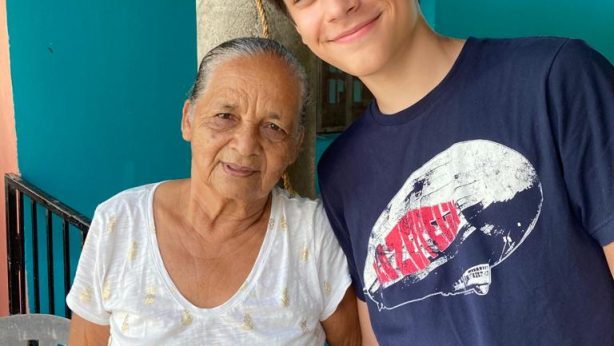Adelante Plans New Educational Product
August 2012 I moved to Honduras to work for Adelante as the International Development Coordinator. Eager to enter the workforce shortly after graduating with my BA in International Relations, I decided against setting any type of unachievable expectations before arriving. This allowed me to quickly adapt to a country which has received a particularly negative reputation in the last couple years, earning the title of “Murder Capital of the World”.

Now, one year later, I am excited to see how Adelante is planning to launch a new loan product that looks to address one key aspect of the insecurity which often characterizes Honduras. From what I have experienced in the past year living here, the most significant factor at the root of the problem is the lack of employment opportunity which is partially brought about by low secondary school attendance. While one former client recently told me very proudly about how she has now been able to send her two youngest children to a private bilingual school after growing her business with Adelante, the exponential growth that she experienced is not typical of low-income businesses. Since we focus our efforts on empowering the poorest of the poor Hondurans, our clients are often barely able to meet the basic needs of their families. Too many must make the difficult choice of pulling their children out of secondary school because of a lack of resources to cover the uniforms, materials, transportation, or other education-related costs that even those in public school must incur. This, in turn perpetuates the inter-generational cycle of poverty in their families.
The impact that the rising violence has had on Honduras’ youth and how this relates back to a lack of education and opportunity can be better understood from an article published last year in La Prensa, a widely read Honduran newspaper. The article refers to Héctor Espinal, a Unicef representative for a children’s program, who explained how, “…the lack of education and work converts the youth into easy targets for crime, either as victims or perpetrators” (my translation). Espinal goes on to highlight how societal inequality and imbalances contribute to the dearth of opportunities available to young people, particularly due to limited access to education that prepares them to work productively. To read the article in Spanish, click here.
While many young people have left school to work, these low-skill level jobs often do not allow them to support their families. Further, many more may leave school due to lack of resources but are then unable to secure any type of work. According to recent statistics, nearly a quarter of the country’s population between 12-24 years old is not in school nor do they have any type of employment. To read the article in Spanish, click here. This current trend is even more severe in rural areas, where our clients live, than in urban areas.
In a report conducted by UNICEF and INE (Instituto Nacional de Estadisticas, the government office that carries out the census), greater insight into the educational system and current limitations can be found. According to the report, attendance to elementary school has improved drastically in recent years, with almost 90% attendance as of 2010. The middle school and high school net attendance levels remain very low, with 45% attendance rate for middle school and 29% attendance at the high school level. At each level, the male attendance rate is lower than the female attendance rate, resulting in large numbers of young men entering adulthood without a secondary education. Further, over 34% of young people not in school who were surveyed in 2010 reported that they are not in school because of a lack of economic resources, a five percent increase from 2005.
With these statistics in mind, our Operations Team has long considered how we could more directly reach the children of our clients to empower them with education and training. By giving the sons and daughters of our clients the opportunity to finish secondary school or pursue a vocation that interests them, these children would be trained and ready for a lifetime of better jobs and higher earnings, and would be at less risk to either engage in or become affected by gang activity, drug trafficking and other forms of illicit activity that plague Honduras. As high rates of crime and violence continue to affect the country, our Management and Board of Directors has brought this concern to the forefront. We are now very excited to launch a new Educational Loan product geared toward this population so that the children of our clients can pursue secondary education or vocational training. The launch will take place at the beginning of next year, in anticipation of the 2014 school year that starts in February.


